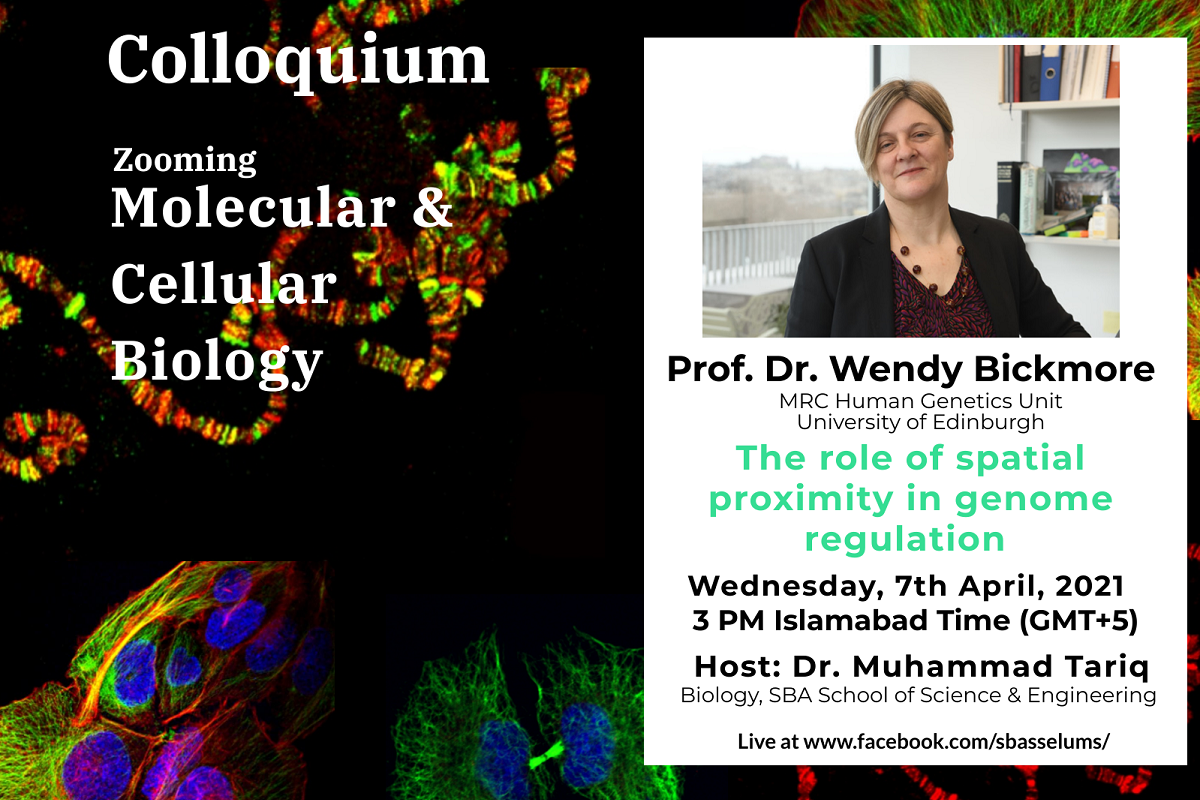
The Role of Spatial Proximity in Genome Regulation
Professor Dr. Wendy Bickmore will be talking about “The role of spatial proximity in genome regulation”, in the next episode of Zooming Molecular and Cellular Biology. The session will be LIVE online via Zoom.
Professor Dr. Wendy Bickmore is currently the Director of MRC Human Genetics Unit at the University of Edinburgh. Prof. Bickmore is an authority on the three-dimensional organization of the human genome and how that influences genome function in health and disease. Her current research explores how the non-coding genome regulates gene expression. Wendy is a Fellow of; the Royal Society, the Royal Society of Edinburgh and of the Academy of Medical Sciences and is a member of the European Molecular Biology Organization.
About the speaker:
Wendy Bickmore is Director of the MRC Human Genetics Unit, at the University of Edinburgh. Her undergraduate degree is in Biochemistry from the University of Oxford and she then completed a PhD in molecular biology at the University of Edinburgh. Following a postdoc in human genetics, Wendy started her independent research group as a fellow of the Lister Institute for Preventive Medicine. She is fascinated by the three-dimensional organization of the human genome and how that influences genome function in health and disease. Her current research explores how the non-coding genome regulates gene expression. Wendy is a Fellow of; the Royal Society, the Royal Society of Edinburgh and of the Academy of Medical Sciences and is a member of the European Molecular Biology Organization.

